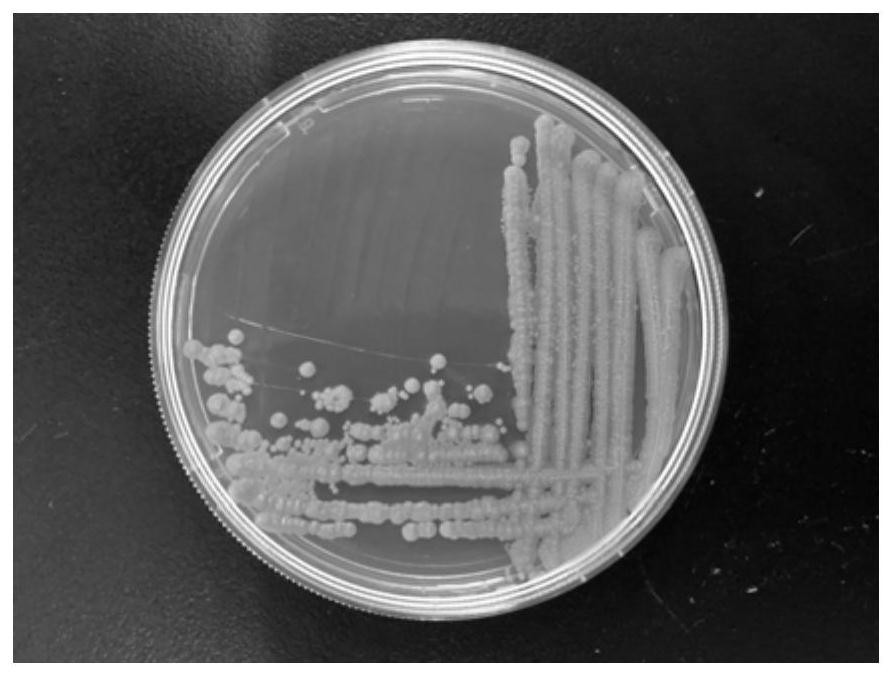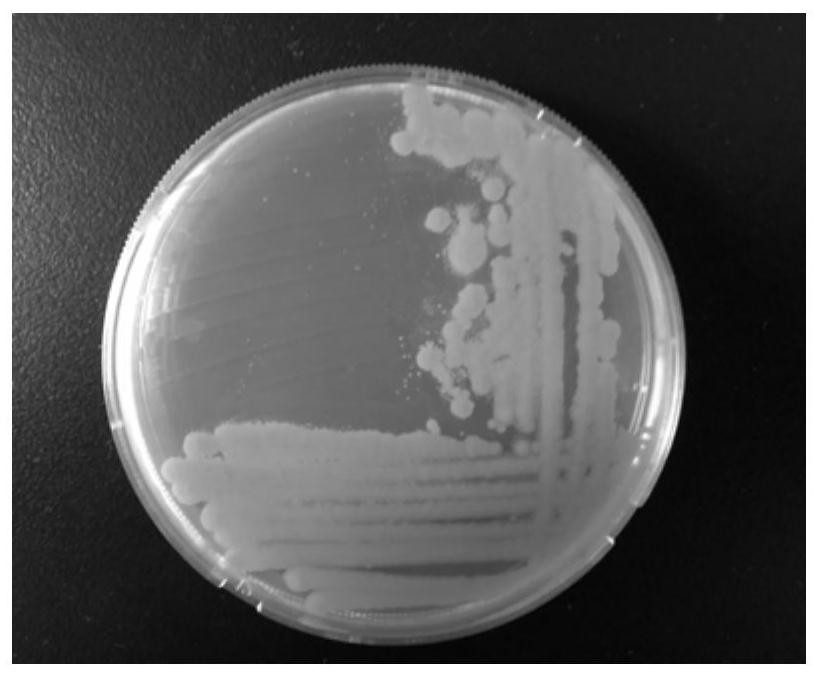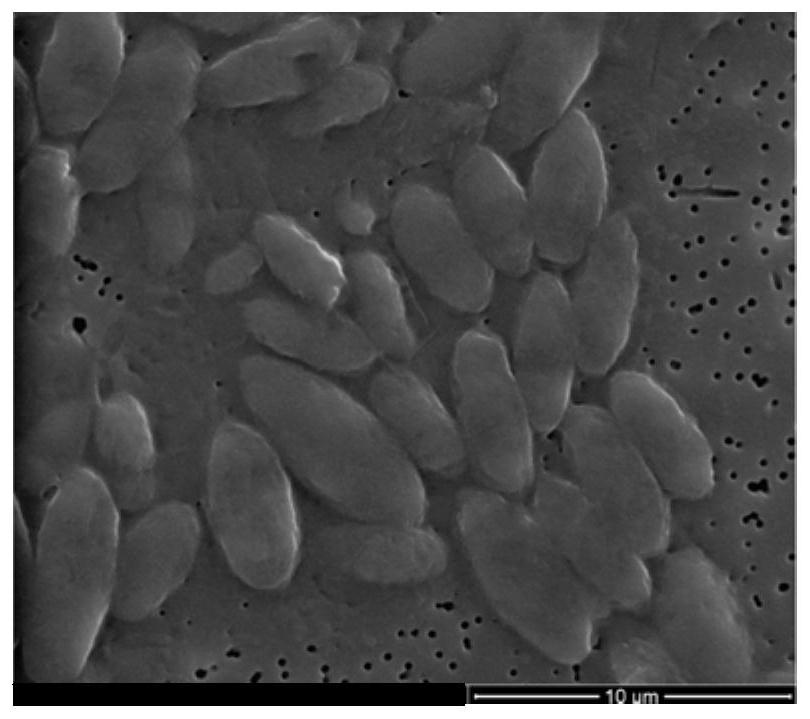A yeast q7-7 derived from deep sea and its application
A yeast and deep-sea technology, applied in the fields of application, fungi, and microbial-based methods, can solve problems such as ineffective effects
- Summary
- Abstract
- Description
- Claims
- Application Information
AI Technical Summary
Problems solved by technology
Method used
Image
Examples
Embodiment 1
[0038] 1. Isolation and identification of strains
[0039] A strain of Septoria sp. was isolated from oceanic sediment samples, which can produce amylase, lipase and protease at the same time, and can be used to prepare yeast feed additives.
[0040]The yeast Q7-7 derived from the deep sea is Sporidiobolus pararoseus Q7-7, which was deposited in the China Center for Type Culture Collection on August 26, 2019, address: Wuhan University, Wuhan, China, postcode : 430072, and the preservation number of the depository center is CCTCC NO: M 2019662.
[0041] The microbiological characteristics of the deep sea-derived yeast Q7-7 are as follows: after being cultured on a YPD plate at 28° C. for 72 hours, the front side of the colony is orange-red, and the back side is orange-pink. The surface of the colony is uneven, the gloss is dark, and the edge is irregular, and the color of the center of the colony is consistent with that of the edge. The surface is viscous and easy to provoke....
Embodiment 2
[0058] The optimal preparation of the ITS sequence fermentation medium of the yeast Q7-7 of embodiment 2 deep-sea origin
[0059] The present invention selects a variety of carbon sources, nitrogen sources and other growth factors that can be used in the yeast Q7-7 fermentation medium. At 28°C, the liquid volume is ml / 250m, the inoculum volume is 1%, and the rotation speed is 180r / min. Yeast Q7-7 fermentation culture comparison was carried out under the culture conditions, and the most suitable medium for yeast Y5 fermentation was selected by weighing after fermentation to 72 hours after comprehensive consideration of indicators such as bacterial content and enzymes. Optimizing fermentation medium usually adopts single factor method and orthogonal experiment design method, and single factor analysis of variance is a simple analysis of variance model. It only needs to separate the factor effect from the error effect, and judge the significance of the factor effect by comparing ...
Embodiment 3
[0073] The optimization and growth curve of embodiment 3 yeast Q7-7 fermentation conditions
[0074] The optimization of the fermentation process plays a very important role in the fermentation industry, especially in the fermentation production, it is a very necessary technical means to improve the fermentation index. There are many methods to optimize the fermentation process. They are not isolated but interrelated. They are often a combination of multiple optimization methods. Microorganisms may be affected by environmental conditions in different stages of growth and in different stages of producing target metabolites. There are different requirements. Therefore, the temperature, pH value, dissolved oxygen, stirring speed, etc. should be constantly changed in the bioreactor to provide the best environmental conditions for it, and finally the maximum biomass and optimal metabolites can be obtained.
[0075] The microbial growth curve is a curve drawn with the number of mic...
PUM
| Property | Measurement | Unit |
|---|---|---|
| radius | aaaaa | aaaaa |
Abstract
Description
Claims
Application Information
 Login to View More
Login to View More - R&D
- Intellectual Property
- Life Sciences
- Materials
- Tech Scout
- Unparalleled Data Quality
- Higher Quality Content
- 60% Fewer Hallucinations
Browse by: Latest US Patents, China's latest patents, Technical Efficacy Thesaurus, Application Domain, Technology Topic, Popular Technical Reports.
© 2025 PatSnap. All rights reserved.Legal|Privacy policy|Modern Slavery Act Transparency Statement|Sitemap|About US| Contact US: help@patsnap.com



